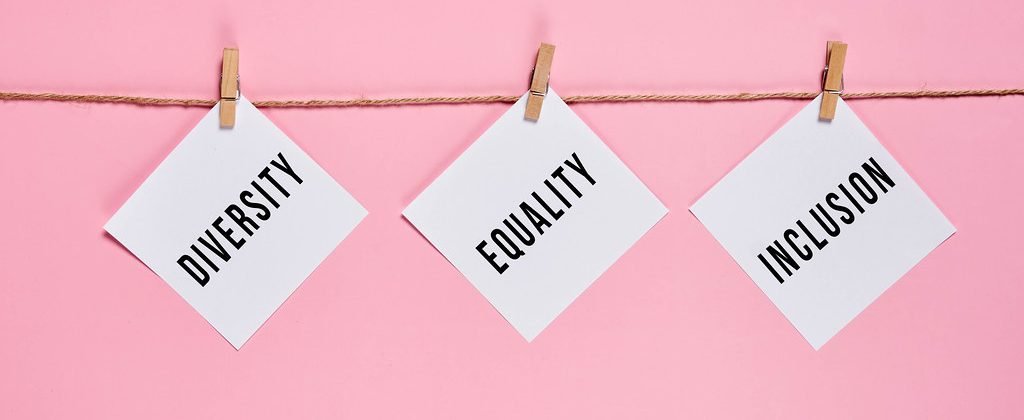

Florida governor Ron DeSantis just signed a bill banning diversity, equity, and inclusion programs at public universities. Here are two pieces I read today about the state of DEI on campuses and in the corporate world.
Here is a taste of Matthew Mayhew’s piece at Inside Higher Ed: “DEI Attacks Hurt All Students, Even Evangelicals”:
In one of the newest fronts in the culture wars, statewide elected officials and lawmakers from Florida to North Dakota to Texas have put forward a variety of policies designed to attack, demonize and dismantle offices of diversity, equity and inclusion by arguing that such offices are discriminatory and promote so-called woke ideology in education.
As an example, here in Ohio, state senators introduced SB 83, the Ohio Higher Education Enhancement Act, which would “prohibit any mandatory programs or training courses regarding diversity, equity, or inclusion” and compel public universities to “establish and implement intellectual diversity rubrics for course approval,” among other clauses aimed at targeting any DEI effort at public institutions of higher education in the state. (An amended version of the bill would allow for mandatory DEI trainings in certain instances.)
What these policies and their embedded logics miss is the role DEI offices play in helping all students—including evangelical Christians—express themselves both in and out of the classroom.
In the research of which I have been a part for more than 20 years, it is clear that evangelical students at public institutions feel routinely scrutinized if not dismissed for their beliefs. This form of silencing is not the same marginalization that occurs for racially and religiously minoritized students. Across the United States, for example, Muslim students are forced to pray in stairwells on campuses because dedicated spaces have not been made available to them or are not located near enough to their classes.
Even so, evangelicals often feel as though their voices are compromised in the academy—that bringing up their religious point of view will lead to them being labeled as anti-intellectual, noncritical, overly biased and even stupid. Add to that the complications evangelicals have with initiating friendships on campus, with many nonevangelicals questioning the evangelicals’ intentions with sharing their stories: Are you interested in a genuine friendship with me or are you trying to coerce or convert me?
Of course, these experiences must be understood in light of the national conversation about Christianity and its influence in society and the academy. How does Christianity privilege evangelical students in the academy? Beyond academic calendars based on Christian holidays or buildings that resemble churches sprinkled throughout college campuses, Christianity often has been and continues to be used as a means for oppressing students who identify as non-Christian, making them feel like they don’t belong on campus.
Read the rest here.
And here is a taste of Jennifer Miller’s New York Times piece, “Why Some Companies Are Saying ‘Diversity and Belonging’ Instead “Diversity and Inclusion”:
The question of belonging has become the latest focus in the evolving world of corporate diversity, equity and inclusion programming.
Interest in creating more inclusive workplaces exploded after George Floyd’s murder in 2020. Many corporations turned their attention to addressing systemic racism and power imbalances — the things that had kept boardrooms white and employees of color feeling excluded from office life.
Now, nearly three years since that moment, some companies are amending their approach to D.E.I., even renaming their departments to include “belonging.” It’s the age of D.E.I.-B.
Some critics worry it’s about making white people comfortable rather than addressing systemic inequality, or that it simply allows companies to prioritize getting along over necessary change.
“Belonging is a way to help people who aren’t marginalized feel like they’re part of the conversation,” said Stephanie Creary, assistant professor of management at the Wharton School of Business who studies corporate strategies for diversity and inclusion.
She believes an abstract focus on belonging allows companies to avoid the tough conversations about power — and the resistance those conversations often generate. “The concern is that we are just creating new terms like belonging as a way to manage that resistance,” Ms. Creary said.
Ms. Foster contends that as a practical matter, there will be no equity if the people in power — “the straight white male”— feel excluded from the conversation. The people traditional D.E.I. practitioners “most want to enroll are the people they’re isolating and honestly ostracizing,” she said.
The nonpartisan nonprofit Business for America recently interviewed more than two dozen executives at 18 companies and found this to be a common theme. “The way they’ve rolled out D.E.I. has exacerbated divides even while addressing valuable issues,” said Sarah Bonk, BFA’s founder and chief executive. “It has created some hostility, resentment.”
It’s why companies like Woodward are now hiring consultants who specialize in “belonging” and “bridge building.” They are coming to the aid of executives who fear that national divisions are penetrating the workplace, threatening to drive a wedge between colleagues and making everyone feel anxious and defensive.
Read the rest here.